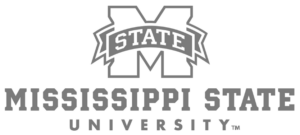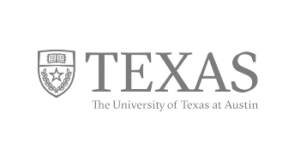The University of Texas at Austin’s Dr. Linran Fan Joins NSF I-Corps to Revolutionize Photonics with Breakthrough Chip-Scale Technology

PI/TL Linran Fan
The University of Texas at Austin proudly announces that Dr. Linran Fan, Assistant Professor in the Chandra Family Department of Electrical and Computer Engineering, has been accepted into the prestigious National Science Foundation’s (NSF) National I-Corps™ program. This milestone marks a pivotal moment in the commercialization of cutting-edge technology developed by Dr. Fan and his team, which includes graduate student Entrepreneurial Lead Pao-Kang Chen and Industry Mentor Arturo Rios.
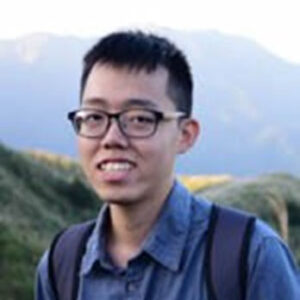
EL Pao-Kang Chen
Dr. Fan’s research centers on a breakthrough in the field of photonics—a domain that underpins many of today’s critical technologies, from optical communications to quantum computing. His team has developed ultra-efficient chip-scale lithium niobate nonlinear crystals, a technology that promises to revolutionize optical systems by enhancing their performance across a range of applications.
Reflecting on his team’s acceptance into the NSF National I-Corps program, Dr. Fan shared his enthusiasm: “We are thrilled to have the opportunity to participate in the NSF National I-Corps program. This experience will be invaluable in helping us bridge the gap between research and market application, and we are excited to see how our technology can impact the industry.”
The commercialization strategy for this technology is equally promising. Initially targeting the quantum technology market—where there is a strong demand for cutting-edge, high-performance devices—the team plans to cater to academic research groups, national laboratories, and technology companies. As the technology gains traction, the team intends to expand into the larger light source market, collaborating with laser companies to extend the wavelength range of their light sources.
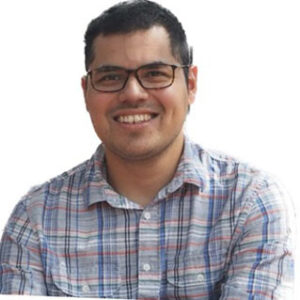
IM Arturo Rios
Lithium niobate is widely recognized as one of the most crucial materials in modern optics, valued for its ability to facilitate nonlinear optical processes such as second-harmonic generation and parametric down-conversion. Dr. Fan’s team has developed a patented fabrication technique that can make lithium niobate devices at nanoscale with ideal performance. This innovative approach, compatible with standard semiconductor fabrication technologies can lead to a dramatic increase in the efficiency over the best existing lithium niobate devices. This advance also offers significant reductions in system size, weight, and power consumption.
The implications of this breakthrough extend far beyond the laboratory. Nonlinear crystals play a critical role in a wide array of modern optical systems, and the enhanced efficiency of Dr. Fan’s chip-scale lithium niobate devices opens new possibilities for advancements in fields such as communications, medical diagnostics, and quantum technology.
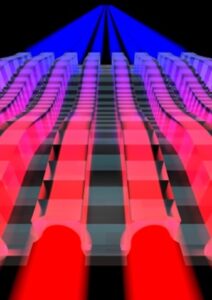
Light color converting efficiency is recovered by adapting the fabrication parameter according to local structure variations.
Moreover, this project aligns with national priorities such as the CHIPS Act and National Quantum Initiative Act, which seeks to bolster semiconductor manufacturing capabilities and quantum technologies in the United States. By advancing the frontiers of semiconductor fabrication technology, Dr. Fan’s work supports these national goals while also laying the groundwork for transformative quantum technologies that promise to redefine computing, security, and communication systems.
Dr. Linran Fan’s acceptance into the NSF National I-Corps program after participating in a regional cohort with the NSF I-Corps™ Hub: Southwest is not just a testament to the innovative nature of his research but also a reflection of his commitment to translating scientific discoveries into impactful real-world applications. With the support of the I-Corps program, Dr. Fan and his team are well-positioned to bring their groundbreaking technology to market, where it has the potential to drive significant advancements in modern optics and beyond.
For more information and to learn more about the NSF I-Corps program or to apply for the next regional cohort, contact Weston Waldo at weston.waldo@austin.utexas.edu.

